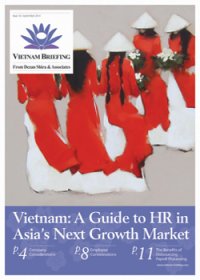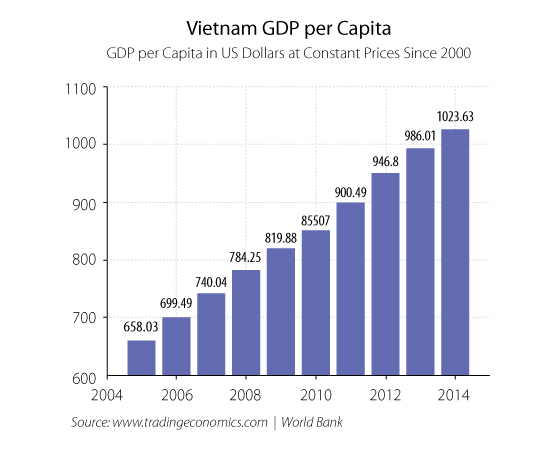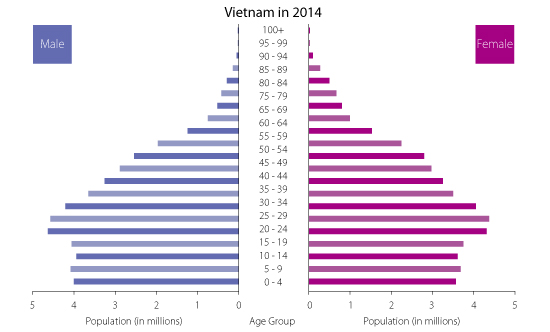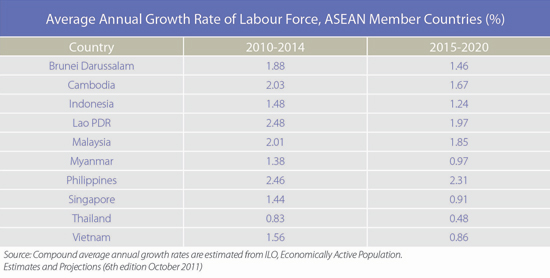A Guide to Understanding HR Trends in Vietnam
By Edward Barbour-Lacey and Hoang Thu Huyen
HCMC – Once a company has gone through all the legal procedures required for the establishment of their business in Vietnam, the next big hurdle is the process of actually hiring the staff that will be needed, and dealing with the associated payroll obligations. Hiring, and the associated legal obligations that go along with it, can be a confusing process. It is therefore strongly recommended that businesses take a careful look at all relevant regulation and engage a professional where appropriate to ensure proper compliance with all laws.
 RELATED: Dezan Shira & Associates’ Payroll and Human Resources Services
RELATED: Dezan Shira & Associates’ Payroll and Human Resources Services
In recent years, Vietnam has become an increasingly attractive place for businesses of all types. The country has a fast growing consumer class and a young and dynamic workforce that is continuing to build its skills set. In fact, Vietnam’s labor force is growing by more than one million people per year. Currently, the hottest hiring areas are sales, IT & software, and marketing.
There are a number of important HR trends occurring in Vietnam. While labor costs are still low (50 percent that of China and 40 percent of those reported in Thailand and the Philippines), wages are steadily increasing. Over the past five years, this increase in salaries has come without a corresponding increase in productivity. Compounding the costs of employing staff in Vietnam are the country’s comparatively high social contribution and income tax rates.
Due to the developing nature of the workforce in Vietnam, it is natural that there exists some difficulty in finding highly skilled employees. Skills and talent shortages are particularly acute in industries such as technology and banking. However, many international companies, in partnership with the Vietnamese government, are sponsoring training programs to ensure that there are a growing number of highly skilled employees to choose from. Additionally, some companies, such as ANZ, are looking to attract Vietnamese expatriates back to the country since they tend to have a higher skills set.
The country’s young and growing workforce has new demands and high expectations for their futures. Vietnam is just now coming into the full benefits of its demographic dividend – where the country will see a massive influx of young people into the workforce over the next few years. To understand what the next few years will bring to Vietnam, it is instructive to look at China, which previously went through its own demographic dividend and saw explosive economic growth.
As the country’s workforce has continued to grow there has been a resulting rise in competition within the job market. This has increased the rates of turnover at many companies as employees are often shopping their skills around to other potential employers. It is not unusual to see applicants who have worked at a multitude of companies over a short span of time.
While businesses in Vietnam have come to accept high turnover as a cost of doing business in the country, there is still a strong push to find ways to increase the amount of time that an employee is willing to spend at a company. Providing higher salaries is certainly an attraction, but money may not be the only factor making Vietnamese employees stay longer at a company. Businesses that find ways to build employee loyalty will therefore be particularly successful.
Commonly encountered problems when hiring Vietnamese employees include a lack of English and technical skills. Many Vietnamese possess basic English proficiency but do not have the fluency required to conduct business in the language. While the government is pushing English education throughout the school system, the full effect of this will not be felt for some time. One strategy for foreign businesses is to provide English lessons for their employees as part of a wider skills training program. Additionally, the government, often in conjunction with foreign tech companies as mentioned earlier, is seeking to boost the technical skills of the country’s workforce. These programs are already starting to bear fruit as can be seen from the sizable investments that companies, such as Samsung and Intel, have made into Vietnam.
Additionally, companies may find it difficult to transfer employees (especially women) to different cities or areas because of their strong local connections. This has the potential to put a drag on a company’s expansion plans as it may struggle to relocate experienced employees. Thus, finding the right partner to aid in the recruitment process is crucial.
Due to the complexities of the labor market, many companies in Vietnam rely primarily on outsourced providers when it comes to HR, particularly for advice related to recruitment, training and payroll. In fact, many multinationals report that they would like to outsource more of their operational HR practices to a regional shared services function.
For more information on wages and employment in Vietnam, please email vietnam@dezshira.com
 The information contained in this article is excerpted from the September 2014 edition of Vietnam Briefing Magazine, titled “Vietnam: A Guide to HR in Asia’s Next Growth Market“. In this new issue of Vietnam Briefing, we attempt to clarify human resources (HR) and payroll processes in Vietnam. We first take you through the current trends affecting the HR landscape and then we delve into the process of hiring and paying your employees. We next look at what specific obligations an employer has to their employees. Additionally, we guide you through the often complex system of visas, work permits, and temporary residence cards. Finally, we highlight the benefits of outsourcing your payroll to a “pan-Asia” vendor.
The information contained in this article is excerpted from the September 2014 edition of Vietnam Briefing Magazine, titled “Vietnam: A Guide to HR in Asia’s Next Growth Market“. In this new issue of Vietnam Briefing, we attempt to clarify human resources (HR) and payroll processes in Vietnam. We first take you through the current trends affecting the HR landscape and then we delve into the process of hiring and paying your employees. We next look at what specific obligations an employer has to their employees. Additionally, we guide you through the often complex system of visas, work permits, and temporary residence cards. Finally, we highlight the benefits of outsourcing your payroll to a “pan-Asia” vendor.
Asia Briefing Ltd. is a subsidiary of Dezan Shira & Associates. Dezan Shira is a specialist foreign direct investment practice, providing corporate establishment, business advisory, tax advisory and compliance, accounting, payroll, due diligence and financial review services to multinationals investing in China, Hong Kong, India, Vietnam, Singapore and the rest of ASEAN. For further information, please email vietnam@dezshira.com or visit www.dezshira.com.
Stay up to date with the latest business and investment trends in Asia by subscribing to our complimentary update service featuring news, commentary and regulatory insight.
- Previous Article Social Security in Vietnam: Understanding Your Obligations
- Next Article Key Steps for Setting Up a Business in Vietnam



































